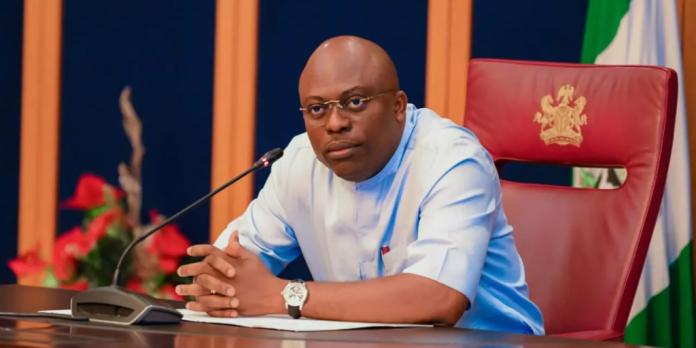The Federal Government has announced the suspension of monthly allocations to Rivers State, a decision linked to a recent court ruling.
On Friday, the Director of Information in the Office of the Accountant General of the Federation, Bawa Mokwa, confirmed the development during a press briefing in Abuja. He explained that the suspension was necessitated by a court order, which the government is obligated to follow.
The suspension stems from a ruling by Justice Joyce Abdulmalik of the Federal High Court in Abuja. The court prohibited the Central Bank of Nigeria (CBN), the Accountant General of the Federation, and certain financial institutions, including Zenith Bank and Access Bank, from granting Rivers State access to funds from the Federation Account. This decision was based on legal challenges surrounding Rivers State’s recent local government elections.
According to Mokwa, the October 2024 FAAC allocation has not yet been disbursed to any state or the Federal Capital Territory (FCT). However, Rivers State will remain excluded from future distributions until the court ruling is overturned or resolved.
“The Federal Government will comply fully with the court’s directive on Rivers State,” Mokwa emphasized. He further clarified that this decision applies exclusively to Rivers State and not to other states or the FCT, which will receive their allocations once the current delay is resolved.
The legal dispute has its roots in the contentious local government elections held in Rivers State. In those elections, the All Peoples Party (APP), backed by Governor Siminalayi Fubara, won all the council seats across the state. This outcome has been a point of contention, especially given the political tension between Governor Fubara and his predecessor, Nyesom Wike, who now serves as the Minister of the Federal Capital Territory.
The election results and the subsequent court order have been viewed by many as a reflection of the deepening political rift between the two leaders. Governor Fubara’s alignment with the APP marked a departure from his predecessor’s influence, intensifying the political rivalry.
The suspension of FAAC allocations is expected to have significant implications for Rivers State. The funds distributed through FAAC are a critical source of revenue for the state, supporting essential services, infrastructure projects, and salary payments for civil servants.
With the court order in place, Governor Fubara’s administration may face challenges in meeting financial obligations. This situation could also affect ongoing development projects and the delivery of public services, creating a ripple effect on the state’s economy and its residents.
The court ruling and the suspension of FAAC allocations have added another layer of complexity to the political landscape in Rivers State. The strained relationship between Governor Fubara and Nyesom Wike has been a subject of public debate, with both leaders representing significant factions within the state’s political scene.
Critics have questioned the fairness of the local government elections, alleging irregularities and undue influence. Supporters of Governor Fubara, on the other hand, argue that the APP’s victory reflects the will of the people and have called the court ruling an overreach.
As the legal battle unfolds, the situation in Rivers State is being closely watched by political analysts, stakeholders, and citizens. The resolution of this dispute could have far-reaching implications for governance, political alliances, and resource allocation in the state.
For now, the Federal Government remains committed to complying with the court’s directive. Whether Rivers State will regain access to FAAC allocations depends on future legal developments and the outcome of any appeals or negotiations.
The suspension underscores the broader issue of legal accountability and the role of the judiciary in governance. While the Federal Government’s adherence to the court order highlights its respect for the rule of law, the impact on Rivers State raises questions about the balance between enforcing legal decisions and ensuring the welfare of citizens.
As events unfold, stakeholders in Rivers State, including political leaders, civil society groups, and residents, are likely to seek ways to resolve the crisis and restore normalcy. For now, however, the state faces an uncertain financial future, with its leadership navigating a challenging legal and political landscape.

